Top 10 Best Historical Periods
Humans have been on Earth for 250,000 years. What was the best and most interesting historical period?
I thought this was a "best" time period list. The Renaissance was the best for the world we know today. The Middle Ages should be nowhere near number one. They are called the Dark Ages for a reason.
And if you do not know the reasons for which they obtained that title, study your history.
Absolutely my favorite era in the history of mankind, with the Industrial Revolution at a close second. It led us out of the Middle Ages and into the modern era. Its name means "Rebirth," after all. You can't go wrong with that.
It was the "Age of Enlightenment," when artists, mathematicians, physicians, and architects all thrived with creativity and ingenuity. Polymaths such as Leonardo da Vinci, William Shakespeare, Galileo Galilei, Michelangelo, Christopher Columbus, and many more paved the paths that would lead us to the innovations we interact with today, as well as many of the cultures that surround us.
It was at this time when modern diplomacy began to develop, science and observation advanced in numerous ways, humanism started to dominate education and religion, and music became a universal language. Art blossomed into a variety of beautiful techniques, ideas became the gateways to modern invention and practice, and overall, it acted as a beacon that spread a unique and thoroughly captivating array of culture and knowledge throughout most of Europe.
Despite the darker aspects, such as the religious wars, the witch hunts, the corrupt popes, and the debates on whether the changes were truly positive and dramatic at all, the Renaissance still serves as one of the greatest and most provocative eras to study in all of history. I mean, you know, that is if you ask me.
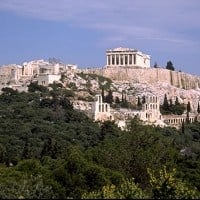
Very interesting, cool, and influential periods of time. It's fun learning about them and what they created. But again, every time period has flaws like wars, political unrest, economic problems, and gender inequality (particularly in ancient Athens, but gender equality was good in ancient Sparta).
I can't deny how much the Classical civilizations (Greece and Rome) influenced Western society.
Ancient Greece and Rome were one of several classical periods of world history. Both provided substantial logic such as those of Socrates, Aristotle, Plato, Democritus, etc. Such vast amounts of knowledge and social organization boomed during this period.
It's a great time period in my opinion.
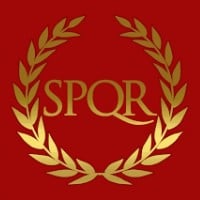 The Roman Empire was a post-Republican period of ancient Rome that lasted from 27 BC to 476 AD. It was characterized by an autocratic form of government and large territorial holdings in Europe, North Africa, and parts of Asia. The Roman legal system and Latin language have had a lasting impact on the... read more
The Roman Empire was a post-Republican period of ancient Rome that lasted from 27 BC to 476 AD. It was characterized by an autocratic form of government and large territorial holdings in Europe, North Africa, and parts of Asia. The Roman legal system and Latin language have had a lasting impact on the... read more The aesthetic! The heroes. The villains. The wars. The architecture makes it so thrilling and interesting to study.
Amazing clothes in that time period!

To those who refer to the Middle Ages as "The Dark Ages," you are clearly being misled by Renaissance and Victorian era writers. Serious historians who study this period will tell you that the notion of it being as dark and grim as many would have you believe is nothing more than a myth.
It was a time when the world was recovering from the fall of the Western Roman Empire in 476, and science and philosophy (believe it or not) actually flourished, especially in the Islamic and Eastern world. Even in Europe, universities became widespread during the High Middle Ages, and there is evidence that suggests people (even peasants) had a much easier life than you would think from watching TV shows and movies.

The time of Ancient Egypt was one of the best in human history. There were so many innovations in science, math, architecture, etc. It was because of Egypt's timeline that Greece and Rome rose into power, so show some respect.
After all, it would be fun to see the Pyramids, which were the tallest structures in this timeline all the way to the Middle Ages.
So mysterious, and the religion at the time was so mixed and matched, and the sense of superiority was just crazy. You've got to love the Egyptians.
With all the pyramids, pharaohs, mummies, and stuff, you know it's got to be good.
Many great explorers like Hudson and Cabot. Columbus really sucked, though.
I love when new things were discovered.
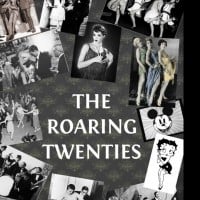
The 1920s were generally a decade of empowerment. A war had just ended. The troops had been dismissed. In New York, there was the Harlem Renaissance, and African Americans were having a chance to have voices in this world, to create art and have a community of art and inspiration surrounding them.
Women everywhere in the US were starting to feel their power and know they could make an impact on the world. Women had just gotten their right to vote! This is also one of the few time periods when breasts weren't considered the epitome of sexiness. Flappers are great in general - the clothing, the music, the Charleston!
The 1920s were exciting! Prohibition was alive and well, with asymmetrical sometimes-villains. Did you know Al Capone opened up a soup kitchen? People were having fun! This is a decade of great culture.
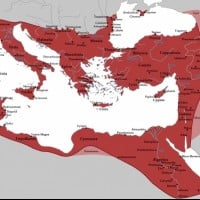
The first giant hub for Christianity, Justinian I was a cool ruler, and over 70 languages were spoken in the empire!
Betrayals, alliances, and big ethical questions. Just like in our time, I guess.
As a Muslim, I would really love to be present in this time period because of its impactful inventions and discoveries. Many mathematicians and inventors who changed the world were alive at this time, and I would love to meet them.
An era of stunning intellectual and cultural achievements. A blending of Arab, Egyptian, Persian, and European tradition.
The era of science, mass translations, and humanity throughout the world, but mainly focused in Baghdad and Spain.

The future before the future. World War I was best known in its time for introducing new technology and tactics in war. They would end up inventing deadly chemicals as well as trenches.
As an Australian, learning about the ANZACs of WWI is pretty cool, and I also feel a sense of pride as there aren't a lot of my favorite time periods in Australia.
The Treaty of Versailles set the stage for the future of conflict for the next century.
Very interesting period to study. Clothes looked cool but were probably uncomfortable to wear. Factories opened, and there was an increase in production, but children were worked all day long to produce things.
There were breakthroughs in many areas and new laws. Etiquette rules were very strict.
19th-century Britain is the essence of colonialism. The colonization of Africa and Britain's world affairs affected the entire world. It was also the industrial period, where the entire world changed forever with the invention of machines.

The Digital Era paved the way for technology to grow on Earth. We are able to talk to people from thousands of miles away. Also, we have new ways to think of society and new governmental systems.
Yesterday is history, tomorrow is a mystery, and today is a gift. That's why we call it the present.
I believe this is the era with the least amount of conflict and an era in which we can have the most amount of relaxation.

When you think of the Wild West, you think of good old cowboys shooting and robbing everyone. But it was so much more. It was the turning point for North America.
People were moving west in search of land. It was a semi-peaceful time until the Civil War, and then the Spanish-American War and the Filipino War followed. Water development advanced a lot from this period since most who moved were newcomers from England or Spain.
They had to learn hunting and fishing, giving us a lot of knowledge. Not only this, but it was a time when America was still truly beautiful, naturally, I mean.
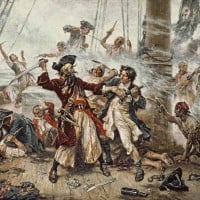
I'm a big fan of pirates and would love to be one. In fact, I have thought of some ship names to strike fear into the Spanish Armada and British Navy (and my rivals). These names are The Bloody Mary or The Devil's Vessel. I would love to explore the Bahamas, Cuba, and Jamaica.
Also, I would love to free slaves and attack slave ships, and then torture the slave traders (because why not). Additionally, I would love to share some rum with Blackbeard and try to hijack a man o' war with him.
Pirates of this time brought forth a turning point in history because they were some of the first advocates for equality and free will who succeeded.
The Ancient China time period is awesome! The architecture is amazing!
I love their clothes, especially women's. The music and makeup style are also interesting!
Stunning culture and a time that I so wish I could live in.
I voted for this because it's an important time in history. To everyone saying, "Why do we need to learn about this? It isn't even important," it is really important, and just because it isn't in America doesn't mean that it's useless.
The Mexican Revolution was one of the first revolutions to happen in Latin America, so it is definitely important to history.
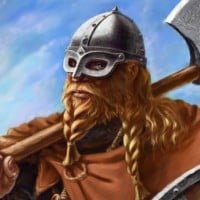
My favorite time period is the Viking Age because I absolutely love Vikings. I would love to become one as well and go on raids to places like England, Ireland, and, most of all, take part in the raids of Paris.
I would love to meet the famous Vikings Ragnar Lothbrok and his equally famous and mighty sons Ubbe Ragnarsson, Bjorn Ironside, Ivar the Boneless, etc. I would also love to meet King Alfred the Great, who was one of, if not the toughest, enemies the Vikings faced as he repelled almost all Viking attempts at taking his kingdom of Wessex.
Wait, the Japanese Civil War that lasted 100 years is a good time? Bro, you and I have some different opinions on that. Have fun with those angry guys with swords and matchlocks.

I absolutely love fashion! But agriculture is really important for the whole world itself.
The best era, with the best fashion, art, and architecture.
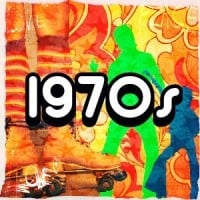
The 1970s is the best era ever! Music, movies, fashion, food - it was all so very fantastic!
The birth of my parents and the true start of video games both happened in the '70s.
The time when crazy people existed, like me!
Alexander the Great's empire. Great combination of cultures, particularly in Alexandria, Egypt, which housed the first lighthouse (the tallest structure in the world at the time), museum, library, and zoo (I think).
The very first lighthouse was made during this time period!

American life in the 1940s was a time of unity and victory. Despite the war, this is one of the few times in American history where the whole country was united, no matter your race. The cars are the best I have seen so far, along with the music like the Andrew Sisters and Glenn Miller.
City life was not as bad, along with country life. The Depression was over, and America had partially recovered. Women were now more recognized and accepted in society, and it is an excellent example of "team effort".
Very very interesting. There were new kinds of weapons, but living during this time was horrible, especially being Jewish among others in Europe, particularly Germany. Actually, Stalin's reign and oppression in Soviet Russia killed more people than the Holocaust.
People talk about the Holocaust more because the events were videotaped as instructed by President Eisenhower, while nothing like that was used in Soviet Russia.
Not only did it have so much great philosophy, but also great art and paintings.
It had many early modern philosophers such as Voltaire and Nietzsche.
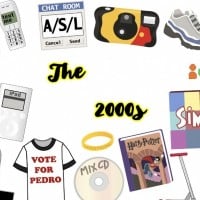
The interesting political movements, especially in America after the 9/11 bombing, raise questions about America's social mobility with Barack Obama being elected. And on the other side of the pond, Tony Blair and the war in Iraq.
Also, a study could be conducted on the effects of the economic crash and how compliance in banking has become increasingly more important.
The 2000s decade was the best era ever with awesome music, fashion, and the internet was cool back then.